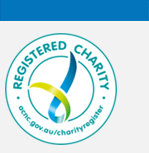Author Credentials
Cory James Williams, Clinical Nurse Consultant Perioperative Access & Patient Flow, Royal Brisbane and Women’s Hospital, Queensland, Australia.
Cory is professionally focused on the identification and enhancement of patient management procedures and processes within the surgical patient journey, aiming to improve patient access, communications and health literacy and health journey experience. Cory has worked determinedly to identify and breakdown complex barriers contributing to patient non-attendance for surgical procedures, by implementing enhanced patient cultural background screening and communications, leading to better emotional support, cultural sensitivity and understanding of the hospital procedures. Cory holds post graduate qualifications, Master of Healthcare Management & Leadership, Clinical Health Informatician Australasia (CHIA), Postgraduate Diploma Occupational Health and Safety and a Bachelor of Nursing.
Yashni Kander, Nurse Navigator Indigenous and Multicultural Health, Patient Flow Services, Royal Brisbane and Women’s Hospital, Queensland, Australia.
Yashni has engaged and consulted closely with Aboriginal and Torres Strait Islander and Culturally and Linguistic Diverse patients, investigating strategies to improve patient care coordination to eliminate any perceived fragmentation of their health journey from hospital to community. Yashni is focused on improving patient trust and engagement with the health system and increasing the rate of attendance for treatment and, avert the rate of discharge against medical advice, and unnecessary admission and re-admissions, while closely considering specific cultural needs. Yashni holds post graduate qualifications, Master of Health Administration and Leadership, and Bachelor of Nursing.
King Law, Perioperative Services Data Manager, Perioperative Services, Royal Brisbane and Women’s Hospital, Queensland, Australia.
King has amassed an extensive fifteen years of in-depth knowledge and skills and application of Information and Technology (IT) with the focus to cultivate and enrich health management and administration procedures. King’s focus is the design and improvement of the management, display design and utilisation of data collection, data analysis and interpretation within the Surgical and Perioperative service line. King holds post graduate qualifications, Master of Information Technology Information Systems and a Bachelor of Information Technology Software Engineering Major.
Patricia Kennedy, Team Leader - Indigenous Hospital Liaison Service, Royal Brisbane and Women’s Hospital, Queensland, Australia.
Patricia is a proud Bigambul women with matriarchal connections to the Kamilaroi peoples of north west New South Wales and South West Queensland and, maintains family connections to the Waka Waka peoples of the South Burnette Region. Patricia has guided the Indigenous Hospital Liaison and Patient Journey Service in establishing engagement and communication between clinicians, health professionals and Aboriginal and Torres Strait Islander patients and their families to promote better understanding of their hospitalisation and treatment. Patricia holds a Bachelor of Adult and Vocational Teaching.
Geoffrey Binge, Cultural Capability Officer, Royal Brisbane and Women’s Hospital, Queensland, Australia.
Geoffrey dedicates his time to the establishment of cultural safety and awareness practices within the engagement and communication between clinicians, health professionals and Aboriginal and Torres Strait Islander patients and their families, to promote better understanding of treatment and healthcare journey for Aboriginal and Torres Strait Islander people.
Elizabeth Strathdee, Assistant Nursing Director Perioperative Services, Royal Brisbane and Women’s Hospital, Queensland, Australia.
Elizabeth has an extensive history within perioperative nursing and is now tasked with the organisational oversight of perioperative services at the Royal Brisbane & Women’s Hospital. Elizabeth dedicates her time to the identification and enhancement of patient management procedures and processes, with an aim to improve the surgical patient journey, improve patient access and health journey experience. Elizabeth holds postgraduate qualifications, Master of Nursing.
Abstract
Background
There are health disparities in many countries between First Nations and non– First Nations populations. In Australia, the Aboriginal and Torres Strait Islander population have several risk factors and are more likely to experience higher rates of post-operative morbidity complications and mortality.
Purpose
To develop a culturally appropriate pre-surgery screening tool, administered by phone, to check health and wellness, identify relevant factors and support Aboriginal and Torres Strait Islander patients to ensure they are appropriately prepared to undertake surgery. The screening tool aims to reduce rates of patient-initiated cancellations of surgery and gain a greater understanding of factors contributing to patient-initiated cancellations of Aboriginal and Torres Strait Islander patients.
Methods
This quality improvement project uses the Model for Improvement methodology and integrates ‘Plan, Do, Study, Act’ (PDSA) cycles to implement, assess and improve the intervention. The rate of Aboriginal and Torres Strait Islander patient-initiated surgical cancellations was measured for an Australian tertiary referral hospital.
Results
The six-month phase after implementation demonstrated a decreased mean rate (0.078 to 0.060) of Aboriginal and Torres Strait Islander patient-initiated cancellations. Responses were thematically analysed to identify contributing factors for surgical cancellations.
Conclusions
Implementing a culturally appropriate pre-surgery screening tool, developed by suitably qualified staff, positively advocated for Aboriginal and Torres Strait Islander patient’s health and wellbeing.
Implications
This study is highly generalisable as the setting has similar key performance indicators and operational governance to many other hospitals treating Aboriginal and Torres Strait Islander patients nationwide.
Recommended Citation
Williams, Cory J.; Kander, Yashni; Law, King; Kennedy, Patricia; Binge, Geoffrey; and Strathdee, Elizabeth
(2021)
"Culturally focused pre-surgery screening to reduce Aboriginal and Torres Strait Islander patient surgical cancellations,"
Journal of Perioperative Nursing: Vol. 34
:
Iss.
3
, Article 4.
Available at: https://doi.org/10.26550/2209-1092.1133
Creative Commons License

This work is licensed under a Creative Commons Attribution 4.0 License.


